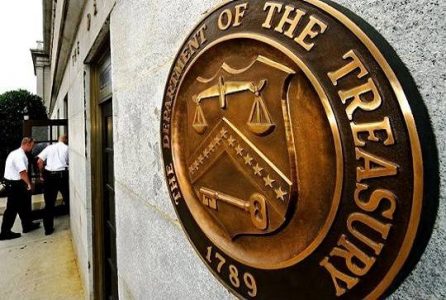
US authorities designated three Islamic State-Khorasan leaders in Afghanistan as global terrorists
The U.S. State Department says it has designated three leaders of the Islamic State (IS) extremist group’s affiliate in Afghanistan as global terrorists.
In a statement on November 22, the State Department said the three members of the Islamic State-Khorasan Province (IS-K) group were classified under the Specially Designated Global Terrorists (SDGT) act.
It added that another man has been sanctioned by the U.S. Treasury Department for providing financial aid to IS-K in Afghanistan.
“The United States is committed to using its full set of counterterrorism tools to counter the threat posed by the Islamic State Khorasan Province…as part of our relentless efforts to ensure Afghanistan cannot again become a platform for international terrorism,” the State Department said.
Among those designated is Sanaullah Ghafari, also known as Shahab al-Muhajir, identified as IS-K’s “current overall emir.”
The statement said he was appointed by IS to lead IS-K in June 2020 and that he is responsible for approving all IS-K operations throughout Afghanistan and arranging funding for activities.
Also designated is Sultan Aziz Azam, also known as Sultan Aziz, identified as holding the position of IS-K spokesman.
The third is Maulawi Rajab, also known as Maulawi Rajab Salahudin, said to be a senior leader of IS-K in Kabul Province. The statement said Rajab plans the group’s attacks and operations in Kabul.
Additionally, the U.S. Treasury sanctioned Ismatullah Khalozai for allegedly providing financial support to IS-K.
IS-K has stepped up attacks in Afghanistan since the takeover of that country by the Taliban following the withdrawal of Western troops in mid-August.
As a result of the latest actions, U.S. persons will generally be barred from engaging in any transactions with those designated. Their property and interests in property subject to U.S. jurisdiction are frozen.
The Taliban has been unable to stem the expansion of the IS-K, which now appears to be present in nearly all provinces. The number of attacks attributed to IS-K has increased significantly from 60 last year to 334 this year, U.S. officials say.
A week ago, Sunni Muslim-led IS-K claimed responsibility for a bomb attack on a minivan in a Shi’ite neighborhood of Kabul that killed a well-known Afghan television journalist.
Source: RFERL





